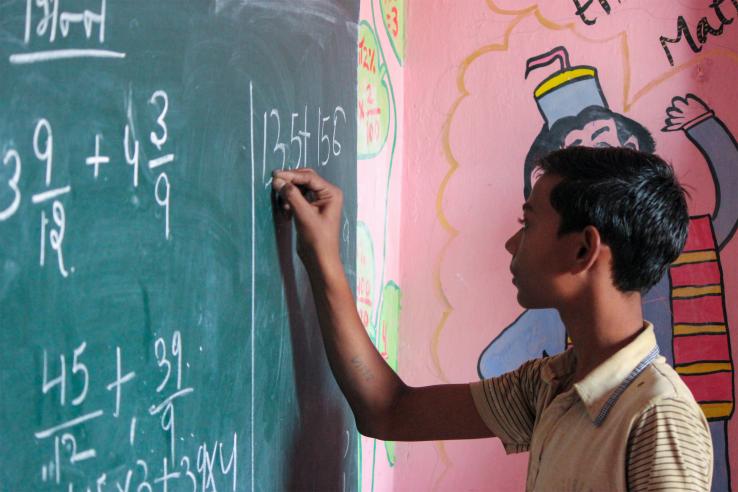Displaying 1786 - 1800 of 7735
Event
Indonesia is in the process of transforming a social assistance program reaching more than 15 million beneficiaries. J-PAL affiliated researchers, in collaboration with the Government of Indonesia, conducted a randomized evaluation to aid this transition and measure the program’s impact. Join us to...
Person
Blog
In light of school closures caused by COVID-19, millions of students are home for the remainder of the academic year. Philanthropy will play a vital role in the response to this crisis. But how can education funders and donors ensure that they are allocating their resources effectively?
Blog
Despite the MicroMasters' broad access and reduced barriers to entry, women enroll in the program at half the rate of men. Conditional on enrolling, women are also less likely to complete the MicroMasters program than men. The difference in enrollment prompted us to take a deeper look into where...
Evaluation
Building on previous research, researchers in this study evaluated the impact of several targeted instruction programs on the learning outcomes of primary school students in Ghana’s public schools. Researchers found significant improvements in numeracy and literacy on average; of the four interventions, in-school and after-school remedial lessons delivered by Teacher Community Assistants had the largest impact on pupil achievement.
Person
Evaluation
Researchers evaluated the long-run effects of temporary contact between individuals from different regions during military service on interregional attitudes and national identity sentiments among former Spanish male conscripts. Overall, conscription outside of one’s region of origin led to positive and long-lasting effects on interregional sentiments, and increased the sense of national identity among conscripts from regions with strong secessionists movements.
Initiative Resource
Initiative projects and documents
Evaluation
Researchers evaluated whether providing low-stakes diagnostic tests and feedback to teachers led to improved student learning outcomes in India. They found that teachers in intervention schools exerted more effort when observed in the classroom but students in these schools performed no better on independently-administered tests than students in schools that did not receive the program.
Person
Alessia Mortara is Policy Manager at J-PAL Africa. She manages J-PAL Africa’s policy team in building partnerships with governments, donors, and civil society organizations to promote the use of evidence in decision-making as well as supporting the scale-up of successful interventions.
Person
Yuen Ho is a Senior Policy Associate at J-PAL Global, where she supports the Political Economy and Governance sector, including the Governance Initiative, and serves as regional liaison to the Africa office.
Person
Becca Toole joined J-PAL’s Policy Group in 2015 as a Policy Associate. She works to communicate findings of J-PAL evaluations to policymakers and strengthen policy outreach.
Person
Kyle Murphy is a Initiatives Lead at J-PAL where he heads J-PAL's funding initiatives.
Evaluation
In Niger, researchers evaluated the impact of a training program for input distributors (agro-dealers) on smallholder access to and use of agricultural inputs. Researchers found that trainings for agro-dealers combined with a demonstration plot increased the share of farmers adopting improved seeds, but did not increase the quantity used to have an impact on agricultural output.
Person
Meagan Neal is a Policy Associate at J-PAL Global, where she writes policy publications, helps forge new research partnerships, and shares lessons from J-PAL evaluations with policymakers.






